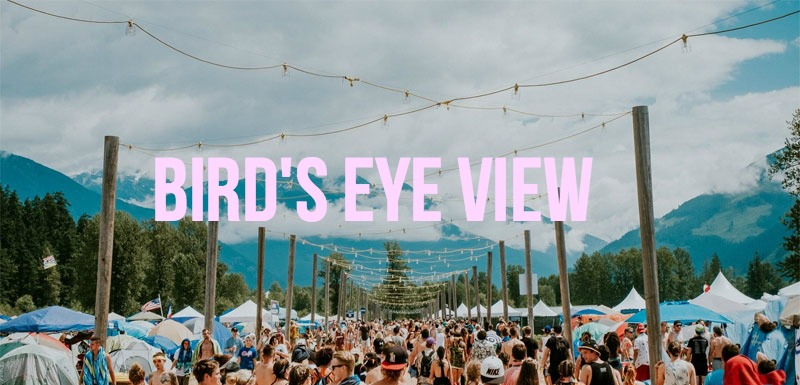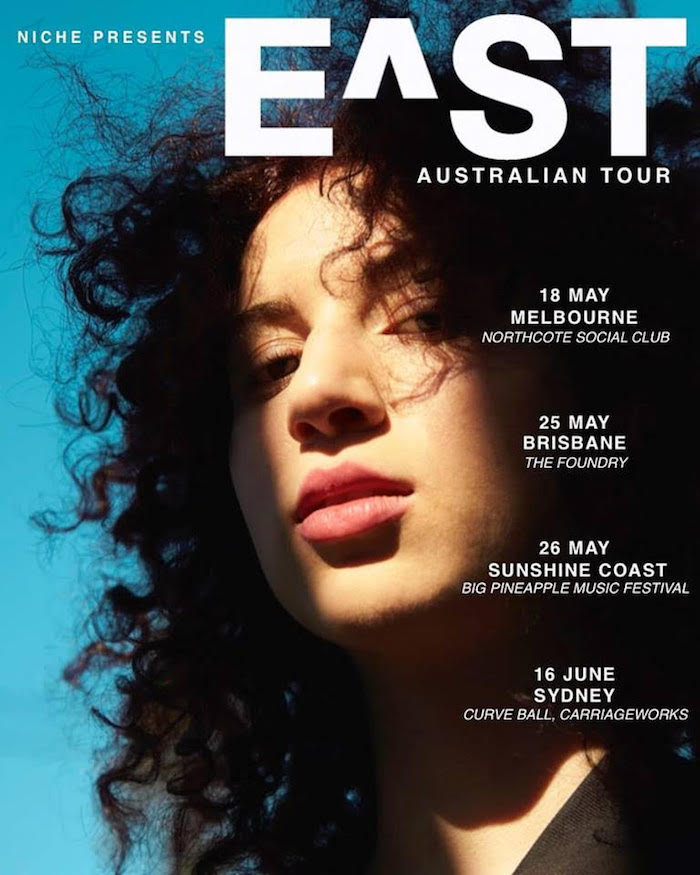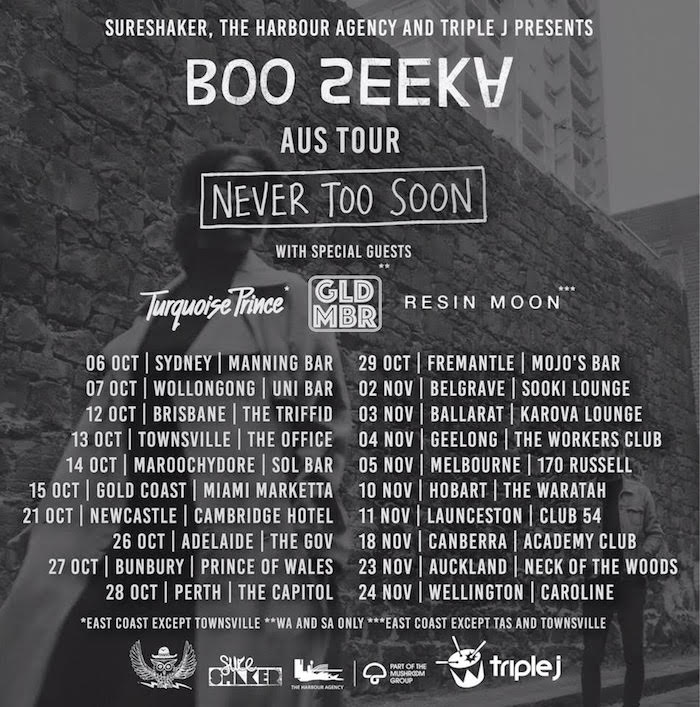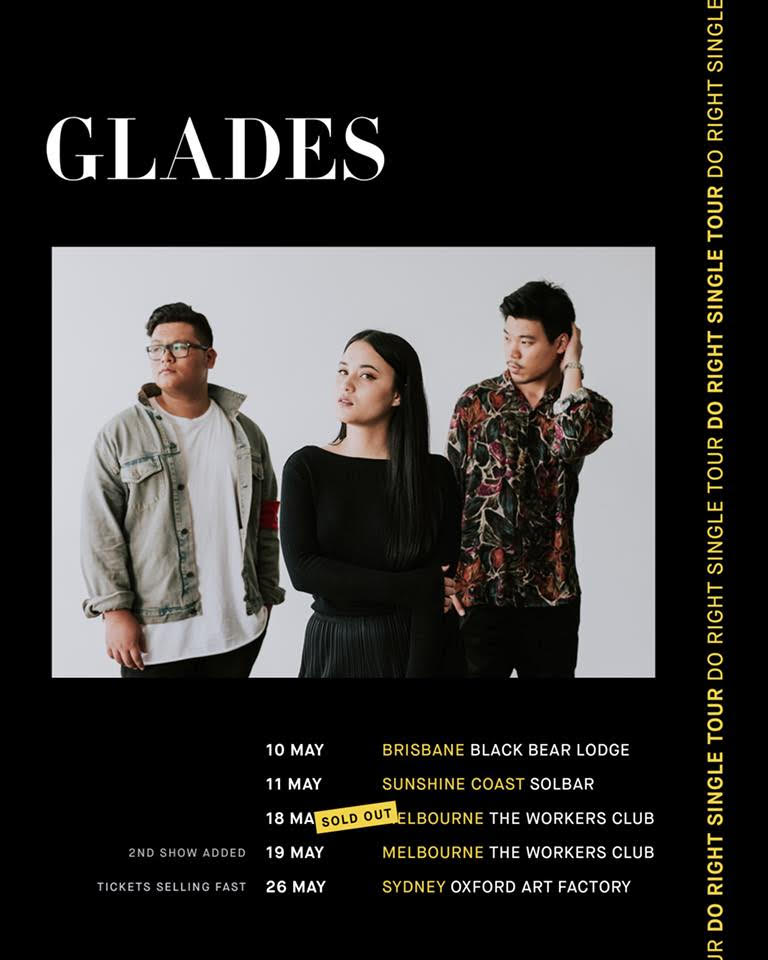Project Description
Interview with
Entertainment Agent: DANIEL SANT
(Niche Talent Agency)
Interviewer: Jemma Bird
.
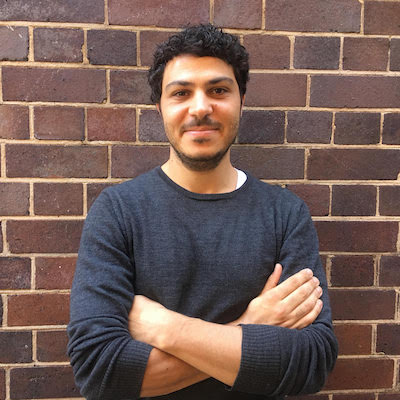
.
In the past, AMNplify has spoken to an array of incredible artists that bring us our favourite music, play our favourite shows and headline our favourite festivals. All of this wouldn’t be possible without the copious amounts of work that goes on behind the scenes.
Amnplify Interviewer Jemma Bird had the chance to speak to some of the hardest working individuals we know and gain a BIRD’S EYE VIEW of what their role in the industry is really like.
Entertainment Agent, Daniel Sant many years experience in the music industry, having worked for The Harbour Agency for over 9 of these years. Daniel now works for Niche Talent Agency where he has an extensive roster of artists including SAFIA, Sticky Fingers, Boo Seeka, Parcels, Hellions and many more. If you want to know what it takes to be a successful entertainment agent, check out our chat with Daniel below!
.
.
What made you pursue a career in the music industry, specifically as an Entertainment Agent?
I feel extremely privileged to be able to say that I always knew that I wanted to work in music, from a really young age (well, the first thing I wanted to do when I was a young child was to be a Paleontologist and dig up dinosaur bones!!). I actually come from an audio production background. I worked in recording studios as well as doing live sound at some venues around Sydney while I studied music, but I quickly realised that I wanted to be more involved in an artist’s career development. I loved live music so it was a no-brainer to me that I wanted to be an agent. Like most people in the music industry, I just went out and applied for everything to do with music while doing as much work experience as possible, and ultimately (due to luck & timing more than anything else) I landed a work experience role at The Harbour Agency, which (again probably more due to luck & timing) turned into an actual job.
.
How did you come to work at Niche Productions?
I was an entertainment agent at The Harbour Agency for over 8 years, and at the end of last year, I left and partnered up with James Browning here at Niche. I feel very fortunate that my entire roster of artists came over with me, and the agency (which already represented some amazing acts like Winston Surfshirt, Thundamentals, Fat Freddy’s Drop, Hiatus Kaiyote etc.) is building into something pretty special.
.
You have an extensive list of artists on your roster, with acts such as SAFIA, E^ST, Boo Seeka and Sticky Fingers, how did you come to work with some of the artists on your roster?
It’s really varied. Some acts like SAFIA I discovered really early on and have been working with since the start; some acts like Boo Seeka evolved from other projects, and some acts approach me.
In Sticky Fingers’ case, the band and their management were notoriously anti-agents for a long time, but because of my work with Boo Seeka (who shares the same management), I ended up being brought on to work with the band and the rest of the Sureshaker roster, and it has become one of my strongest relationships in the music industry.
.
Are you continuously looking to expand your roster? If so, where do you find artists that you come to work with?
I am. However, I am also very conscious about never being in the position of under-servicing my artists. I only look to take on new artists if it won’t put a strain on the rest of my roster and I can still give them the same level of attention. I also won’t take on an artist if their style is too similar to another act I am already working with and may potentially cause a clash by the two acts competing for the same sorts of opportunities within the same roster.
The main ways I discover new artists is by seeing live music, constantly research new music being added to radio, streaming playlists, music blogs, and also by word of mouth within the music industry.
.
.
What does your role as an agent entail?
The veeeeery simplified answer is that the agent’s role is to strategize, organise & manage the live side of an artist’s career. This involves organising an artist’s headline touring, getting them on festivals, getting them on international support tours, and anything else to help support what the artist wants and to develop & sustain their live career.
That’s the core role of an agent. This doesn’t include any of the other things like the A&R element to our job (which includes discovering & bringing on new acts, but also potentially having to work to develop their live ‘show’) finding new sources of income & opportunities for our artists (e.g. sponsorship, new touring markets, corporate opportunities etc.), and ways to be creative and grow our business.
.
What factors do you need to take into consideration when booking a tour?
It really differs artist-to-artist. Every act is different, and they have their own individual & unique markets, separate to any other act. It would be incredibly naive to look at an act in a generalist view and approach their live development broadly.
I am constantly surprised at how decisions made by us, that seem insignificant at the time, can create big perceptions publicly. When booking an artist’s headline tour, we need to discuss and make strategic decisions about the markets/cities we want to look at including in the tour (What is the artist’s profile in these markets? Is it too soon and potentially too risky? Do we need to develop these markets more? What are the additional costs associated with these markets?); the venues & capacities; the ticket price/s; the supports; the venue deals; the venues’ inhouse production and if we need to add production, lighting or anything else to be able to deliver the artist’s ‘show’; performance times, the tour party, the announce, presale & on-sale schedule; tour presents & sponsorship partnerships; venue/ promoter marketing support and what the artist/publicist would need to do PR-wise to sell the shows out etc.
There is a lot more involved than people think and each show opportunity has the potential to affect the artist’s public perception & profile.
.
How far in advance is a tour usually booked?
For the bigger capacity tours I am working on we’re having to book 6 – 12 months in advance now. The main reason for this is that there are just not enough venue options at that level, and the market is just too competitive, meaning that venues are being booked up quicker than ever. Even mid-range venue choices like Oxford Art Factory (500 capacity) to Metro Theatre (1,200 capacity) are solidly booked out until September/October and it’s hard to get a clear run. I am currently booking tours for November – December and it’s only the start of May!!
.
One of your artists Glades, recently opened for LANY on their Australian tour. Are you responsible for booking artists as support acts as well as their headline tours?
Yes, this is definitely a part of the agent’s role. Tour supports for artists can be a great opportunity for them to perform in front of a new audience and potentially win the new audience over – that is, if they understand how to best capitalise on these sorts of opportunities. Sometimes, support opportunities can become pointless & wasted opportunities because the support doesn’t get any press or because the audience doesn’t turn up until right before the Headliner. It’s my job, as agent, to understand the potential of the opportunity and make sure that my artist can best capitalise and benefit from it.
.
.
Due to the lack of appropriate sized venues for up and coming artists around the country, do you think it’s better to book a venue that you know will sell out and create demand for an artist or to book a venue that ensures everyone a ticket and run the risk of not selling out?
One of my main strategies for headline touring is to build demand by selling out shows as quickly as possible. This is a strategy I have used many times (e.g. acts like Boo Seeka, SAFIA, Lorde etc.) and definitely works to build demand. I will always favour under-shooting and looking to do multiple shows at a smaller capacity level than over-shooting and trying to cater for more ticket sales etc. The main reason is that the public don’t really know what capacities venues are, and announcing 2nd, 3rd, 4th shows looks much stronger than one bigger capacity venue not selling out, and also allows that bigger capacity still up our sleeve for later.
The only time I might look at a bigger venue that might be over-shooting, is to create a specific perception and it’s mostly for industry when going for certain opportunities like festivals etc.
.
Is your job solely office based or are you on site during the events?
It is primarily office-based, at least during the daytime. But I am out a lot at night too, either at shows or going for drinks or dinner with artists and/or industry. And if I’m home, I’m always working anyways. I don’t go on tour with my artists, it isn’t really of benefit to them, but if it’s a bigger tour, I might go to the first/last show, and of course the Sydney show/s..
.
Working in the music industry is not a typical 9-5 career. How do you manage to balance your personal life?
I am really lucky that my wife loves live music, so she comes to a lot of shows with me. If she didn’t, things would be really difficult…
Balance of life is really important, especially when mental & physical health is such a real & prevalent issue in our industry! I always try and make time for friends and family, and always try to do things with my wife outside of taking her to gigs (even if it’s just going out to dinner together before the show). And in terms of personal health, I wake up at 5:15 every morning to work out before heading into the office, so I feel good & focussed for the day.
.
What has been your biggest career highlight so far?
My big highlights are always when I see acts do well and take big steps forward after working so hard to get where they are. Personal highlights don’t happen very often, so the job forces you to take any wins you can, no matter how small.
.
.
What has been your biggest career blunder and how did you deal with/ overcome that?
I haven’t really made a big ‘career’ mistake, but I make little mistakes all the time and am constantly learning. Attention to detail and communication are huge parts of the job and I am always learning how to be better. I always maintain that transparency is vital, and as long as you can admit fault & learn, everything can be worked out, and it just becomes a learning experience. At the end of the day, we’re not saving lives, so even though it may feel like the worst thing in the world at the time when a problem happens, usually being level headed and talking it through gets the problem solved pretty quick.
.
What’s the biggest misconception of your job?
Some people have this opinion of agents having no morals, who do whatever they need to do to get ahead, which is obviously bullshit. Contrary to some peoples’ belief, you can be an agent and still be an honest person with ethics & morals. Unfortunately, this industry does have a lot of game playing and dodgy people, but it’s also full of some of the best people in the world, who only want to help the artists they work with. The beautiful thing about this industry is that it very quickly separates the people who are in the industry for the right reasons, and weeds out those that aren’t.
.
What advice would you give to someone who wanted your gig?
Obviously, this job is very competitive and full of stress and ups & downs, but it can also be one of the most rewarding. Anyone can book bands, it’s not brain surgery, but it’s all about how much you give. If you’re level-headed, not afraid to work hard, can deal with the stress, have a good attention to deal, and are a good communicator, then you’ll be fine. If you don’t love it though, then you should probably do something else, otherwise you won’t be able to deal with the grind.
.
Lastly, What’s your favourite part about your job?
I know it’s a cop out, but everything. I truly do feel blessed that I get to do what I love every day. Yes, it’s stressful and has many, many challenges, but I have never questioned what I do and thought about doing anything else. The occasional perks aren’t bad either..
.
.
.


